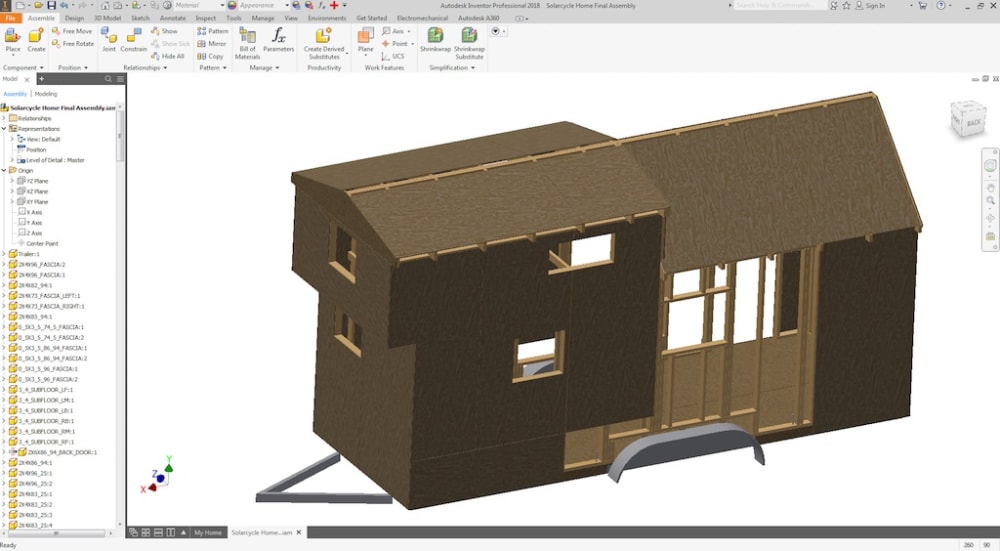Our off-grid tiny home designs will be on a trailer powered by solar energy and propane. The goal is to use the latest in renewable technology to create a daily living space that is equal or better in providing comfort and the convenience of a larger home. The main difference between a Solarcycle tiny home design and other tiny homes is our focus on treating the home as a thermodynamic project involving long- term tiny home living issues such as waste management, ventilation, condensation, ergonomics, accessibility, energy efficiency, insulation, safety, and manufacturability. Right now, our prototype tiny home will include an incinerator toilet, solar power storage, propane heating and cooking, an energy recovery ventilator, LED lighting, and Aerogel insulation.
Nearly all other tiny home designs are grid-tied and require electricity, sewer, and water connections in order to function. There are not many off-grid tiny home solutions for long-term living that can operate independently from the city grid utilities. We believe this off-grid focus will be the next step in tiny home innovations because these types of tiny homes can operate sustainably in both the city and remote locations with minimal overhead and setup costs.
Our target customers are young people starting out their career moving from place to place saving up for a larger home, families or individuals looking to downsize due to economic hardship, college students, low-income families, and off-grid portable rental vacation spaces. We understand that housing is vulnerable to fluctuations in job, energy, and real estate markets and that tiny homes can fill the gap for many people who need to downsize. An individual may take many years to recover from an economic hardship so a quality living space during that time is essential and technically achievable.
Video
Like this entry?
-
About the Entrant
- Name:Isaac Porras
- Type of entry:teamTeam members:Isaac Porras, Founder – Isaac grew up in San Jose, California and earned a Bachelor’s and Master’s Degree in Mechanical Engineering from San Jose State University. His father owns a sheet metal shop where Isaac learned most of his manufacturing design knowledge by making sheet metal parts for customers. Most of Isaac’s experience after college has been in the semiconductor industry designing parts for machines that make silicon computer chips. With over 10 years of design experience and a few successful Kickstarter projects under his belt, Isaac began building a prototype tiny home. Isaac also has experience with economic hardship during the 2008 economic crisis and understands the issues related to not being able to afford rent, which led him to the creation of Solarcycle.
Carlos Babcock, Advisor – Carlos was in Corporate Finance and Banking before joining the non-profit world. While working in corporate finance, he developed cash management and financial modeling systems for a Japanese manufacturer and spin- off from a major merger in the Oil and Chemical industries. While in the banking industry, he developed credit models for banks catering to middle market companies. In the non-profit sector, Carlos has worked with Credit Unions, advocacy groups, and civic organizations as a board member, policy coordinator, and founder. - Patent status:none

